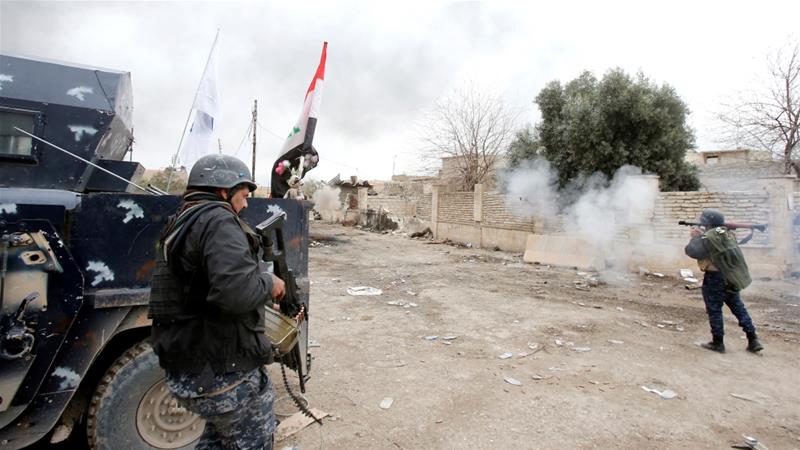Download PDF :


ARA News (March 23, 2017)
The Iraqi government under Prime Minister Haider al-Abadi vowed to control the Shia Popular Mobilization Units (PMU), after an Iraqi delegation visited Washington, a U.S. government spokesperson said. The Kurds fear that the Shia groups might attack Kurdish areas in the future after the defeat of ISIS.
“I will say the readout yesterday released by the White House did say that Iraq and the U.S. will not tolerate efforts by any country to destabilize Iraq or undermine Iraq’s democratic institutions,” the acting U.S. State Department spokesperson Mark Toner said.
“With respect to the PMUs, Prime Minister Abadi has taken steps, we believe, to bring them under government control. He’s done that through legislation. And he’s also made efforts to ensure that armed groups do not, in any way, participate in the political process,” he said.
“I think it’s important also to emphasize that the PMU is an umbrella term for an assortment of militias that includes, of course, Shia, but also Turkmen, Christian, and Sunnis; and also worth noting that not all Shia militias are Iranian-supported or funded,” Toner said on Tuesday.
“But I think that all countries in the region simply need to respect Iraq’s sovereignty,” he concluded.
The Kurds fear that in the future there will be clashes between the Peshmerga forces and Shia militias over the disputed territories in Iraq.
“Given the decentralized nature of the PMUs’ leadership and chain of command, as well as the diversity of their loyalty, which is not uniformly to the Iraqi state, some may see in the Kurdish Peshmerga a new enemy to justify their raison d’être,” Bilal Wahab, Soref fellow at the Washington Institute, told ARA News.
“The situation is combustible more acutely in the disputed territories, such as oil-rich Kirkuk, Diyala and Nineveh plains which have come under Kurdish control. Hence, the war against ISIS has turned the geopolitical table in favour of the Kurds,” Wahab added.
The Kurdish Washington-based analyst said this could become a cause for the PMU to pick up, after ISIS is defeated. “I think the disputed territories remain a fault line between the Iraqi and Kurdish governments, and fending off Kurdish control in these areas would be a new, post-ISIS cause for some PMU groups to pick up,” he said.
However, he says it’s unclear how long this conflict would be, depending on the interest of the different actors.
“The more important question here is, which PMU groups serve: the Iraqi government’s agenda, Iraqi political parties’, or neighbouring Iran’s? This will dictate the depth and breadth of such a potential conflict,” Wahab told ARA News.
“It will also depend on the Kurdish reaction. I imagine that a Kurdish escalation would undermine Kurdish gains. The KRG has a myriad of other problems with Baghdad –oil, financial, political– that have been slipped under the rug due to fighting a common enemy,” he stated.
“I am afraid the Kurds might also have a political interest in facing off with another enemy in order to avoid addressing these longstanding disputes and challenges, especially in an election year,” he concluded.
 BATTLE FOR MOSUL: SHARP UPTICK IN CIVILIAN DEATHS
Iraq
24.03.2017
BATTLE FOR MOSUL: SHARP UPTICK IN CIVILIAN DEATHS
Iraq
24.03.2017




























